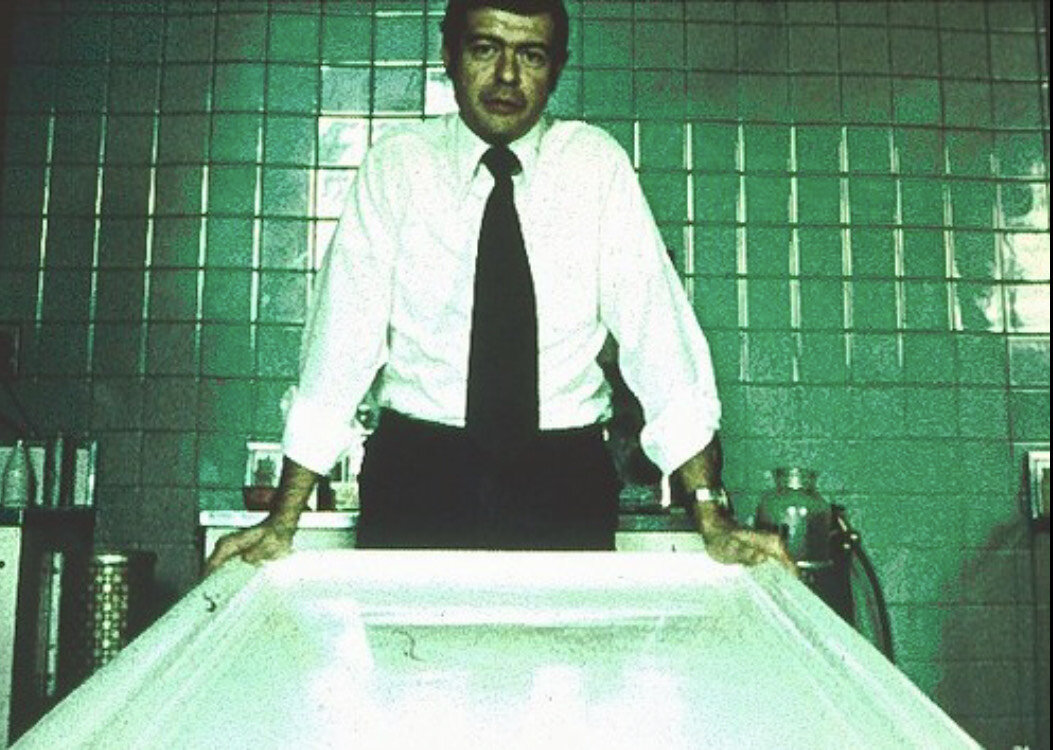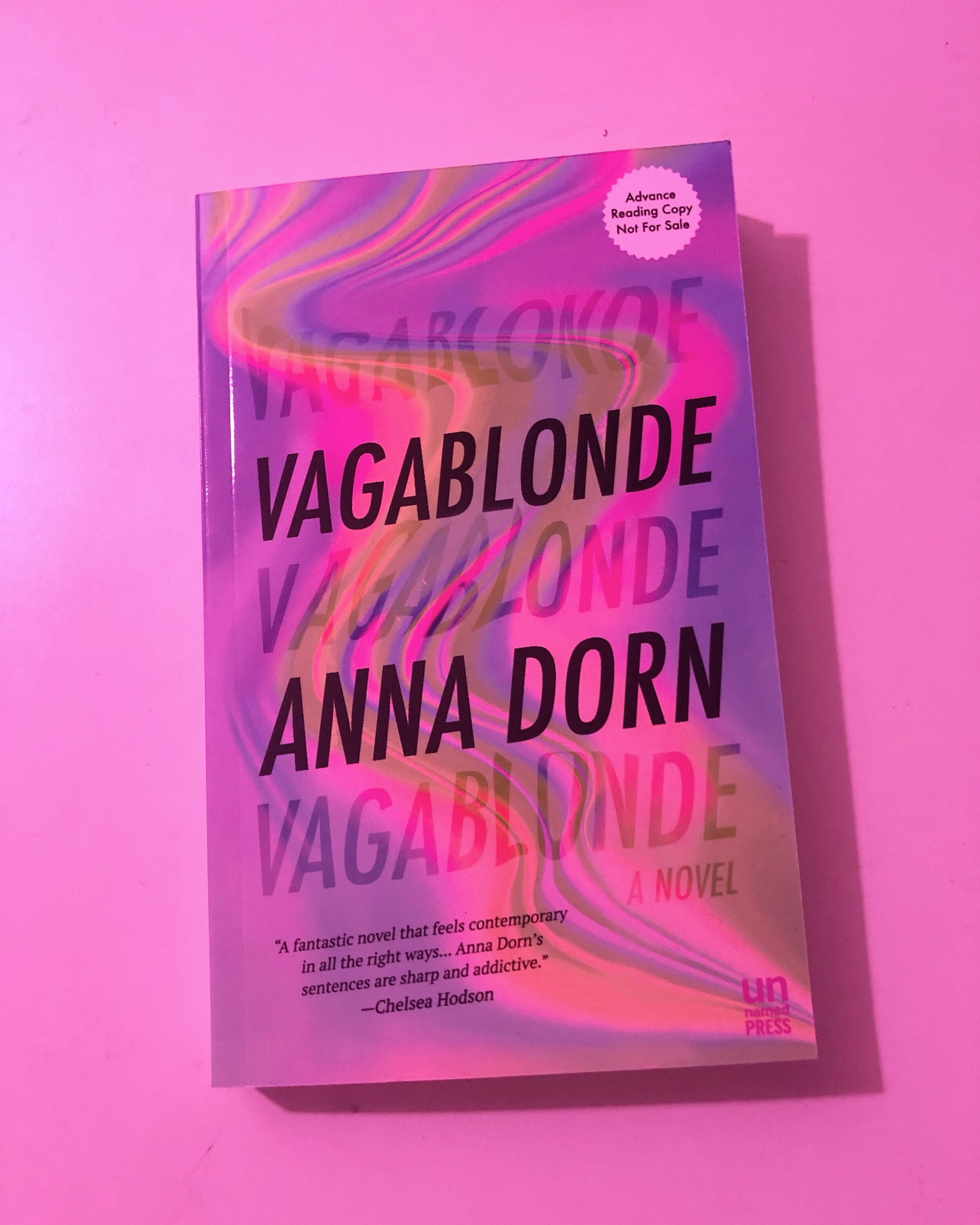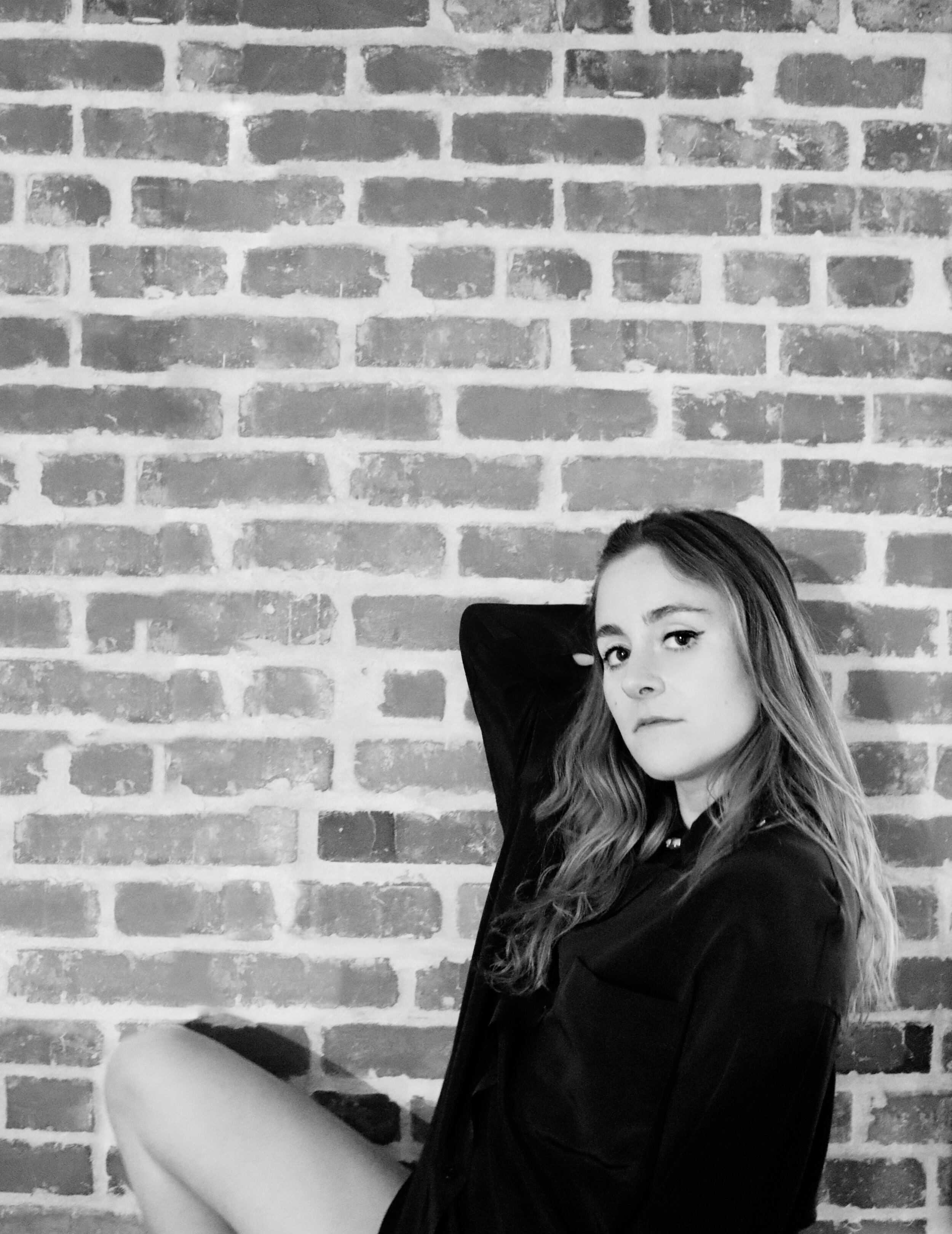Police sirens called to each other across the City. The blue sky was immense and radiant. The pleasure of it was overwhelming. With each step he was reminded of the year before, when he’d been discharged from the hospital on the first day of summer. Never sick a day in his life, he’d somehow contracted walking pneumonia. The warm air had caressed his body in an offhand, wanton way. As an invalid struggling to keep body and soul together, the idyllic weather had felt like a personal affront. It seemed he’d been marooned on the wrong planet, in the wrong atmosphere.
He stopped at a phone box and removed a black leather notebook from his coat pocket. He smoked a cigarette as he turned its pages. There was a woman, a writer. Her friends believed, not without reason, that she was using her boyfriend to kill herself. He threw her money away at the gaming tables, he drank it in bars and spent it on narcotics. And of course, fulfilling all the requirements of a bad melodrama, he beat her. It would only be a matter of time before her pen, her typewriter fell silent.
He fished in his pockets for coins, then picked up the telephone.
* * *
Alain increased the flow of the oxygen tank and stared out the window of his study. Not for the first time did he note that his cyanotic fingernails matched the purple-blue dawn horizon. One lung had already been scissioned from his body, the other was tumorous and failing. It was difficult to speak and the effort required to write anything longer than a line or two was beyond him. A trip to the bathroom was like the journey along the road to Cavalry. The tracheostomy had been the final insult. Even in the voluntary quarantine - he hated to travel - of his beloved apartment, which through habit and memory had become a kind of scaffolding to his brilliant mind, he was deprived of that essential thing that made life livable: dignity.
The solution was obvious, but in his diminished state the execution of such a crucial, simple act was unimaginable.
A week earlier, one of his former students - a drop-out named Patrick - had visited. Patrick, who worked as a film technician, used to occasionally supply Alain with cannabis, valium etc. During the visit little was said. Alain sat in his wheelchair, chained like a dog to his oxygen tanks, nodding in agreement, sometimes shaking his head ‘no’ or, with the aid of a little black cylinder - an electro-larynx - gasping out a simple phrase. It was a difficult encounter for both men. Afterward, in his seat on the Metro, Patrick gnawed at a thumbnail as he thought of Alain. His friend’s suffering revealed what most had long suspected: the man was not merely a genius, but a christ, a saint.
Patrick recalled Alain's lectures at Vincennes - great feats of erudition and improvisation that were attended by thousands. Torrents of language and ideas flowed from him in those days. Moreover, the fame of his books was even greater than the aura of the legendary lectures. His very essence had been dispersed into those books. Patrick was sure they would be read for centuries to come.
In Patrick’s presence Alain had been, to a certain extent, mortified by his own state of degradation. On the other hand it was like standing naked before a dog: ashamed of what and naked before whom? Suffocation brought on the sing-song voices of delirium. He’d been stumbling between registers of being for month after month. He was beyond caring.
Hands in his lap, eyes imploring: “Patrick...your friend...The...Midwife...”
Patrick knew a man, an American who also worked in film. The American’s talents were unusual. On a shoot in Gambia this American, this man known as The Midwife, had been tasked with delivering briefcases full of cash to various ‘advisers’ within the government. Eventually, he was smuggled out of the country in the tiny trunk of a Roman Catholic nun’s Fiat.
He was a fixer, a factotum, a man in awe of the creative act. Patrick would make some calls. The last he’d heard The Midwife was in Ypres...
Alain sat in his wheelchair, caught in an in-between moment of empty time. His gaze returned to the window. His wife was at a seaside cottage with their daughter and grandchildren, the nurse would not arrive for another ninety minutes. He flipped open the book that was wedged between the arm of the wheelchair and his thigh: the Zurvanites believed that each thing on Earth corresponds to a sacred, celestial counterpart: for the physical sky, there is a sacred sky...
A cup and saucer vibrated like chattering teeth as he took a mouthful of cold tea.
The Midwife, meanwhile, walked by the Musée de la Vie Romantique, turned the corner onto Rue la Fontaine, not bothering to look up as he passed the building where George Sand and Frédéric Chopin once cohabited and continued through the area lately called South Pigalle but known long ago as La Nouvelle Athènes. Once in Alain's building he rode the tiny lift to the fifth floor.
Rucksack slung over one shoulder, The Midwife stood with his back to the door. He bowed his head. “My French is awful. After all these years, I still speak like a child.”
Alain looked up at him from the wheelchair. Adrenaline worked, ever so slightly, to open the passageways of his lung. The electro-larynx spoke in its strange metallic voice. “Not to worry...not to worry...these days...we all can converse...in the language...of...the...oppressor.”
The Midwife smiled and held out his hand. “Swann”.
Alain's watery eyes moved back and forth in the pink orbits of his skull. Tall, blonde hair, blonde mustache, the heavy build of a laborer or an athlete. Alain estimated Swann was no more than 30 years old. He thought, naturally, of Baudelaire: In the days when a powerful and zestful Nature/brought forth each day monstrous children.
“Death should be like renouncing a vice. Instead, dying, even more so than living...is...labor.”
Swann sat on the couch facing Alain. Like lovers, they exchanged an awkward, unintended glance. Swann turned away, unzipped the rucksack and removed a small black velvet jewelry roll. Carefully he extracted a tiny package of white powder and a syringe.
“No.” Alain shook his head. “No.”
Swann returned the black velvet roll to the bag. His hand searched through its depths and removed a coiled length of rope. With a few twists of his hands one end of the rope became a noose.
Alain shook his head. “No.” He drummed his fingers on the plastic arm of the wheelchair. He’d always despised the idea of interiority as an engine of change. Desire came from without, like maggots scuffling and reproducing on a body. His mouth was dry. He had become a machine whose sole function was to produce a cadaver. Pinpoints of sweat were breaking out all over him. He turned his head toward the window. The electro-larynx interrupted his thoughts: “I wish...to fly...into the arms of death.”
Swann stood and walked to the window. Five stories below people strolled along the sidewalk, parked cars glittered in the sunlight. He took a step back. There were ventilating locks on the sash. A simple matter to remove them.
“You know, Alain, whenever my melancholy gets the upper hand and I find myself becoming morose, whenever it’s a dark, rainy December in my soul, whenever I find myself involuntarily standing outside funeral homes or cemeteries and willpower alone is all that keeps me from jumping in front of a bus, then, well, I know it’s high time to do something radical. Knocking someone’s hat off their head isn’t really enough.”
Alain watched him remove a Philips head screwdriver from the rucksack, shrug off his denim jacket, hitch up his blue-jeans, tug at the collar of his white t-shirt. Strands of muscles leapt in his forearms as he twisted the screwdriver. The syntax of a young body was miraculous. When Alain was young, the manifestation of age, of disease in a person’s body appeared to him as the signature of a moral failing. Youth was virtue.
Pieces of the window-locks fell to the floor. Swann pocketed the screwdriver, pushed open the sash. The lemon-yellow curtains billowed around him as the warmth of an early summer day swept through the room.
Along with the rush of air something like a musical theme was introduced into the atmosphere of the apartment. Its tempo continuously increased. Both men felt it.
“I can’t get moving. I’m never ready for anything.” The electro- larynx dropped to Alain’s lap. He smiled, then, once again, lifted it to his throat. “To love, to eat and sleep well. Now and then a little laughter...”
Swann stood above him. Fear lit the old man’s face. He was trembling.
“You ready for this? Is this something you really want? Maybe we ought to forget it?”
Alain shrugged. “How were you taught to swim?”
“My uncle picked me up and threw me off of a pier into a lake.”
“So you see...”
Swann bent over, disconnected the oxygen bottle, scooped Alain up and carried him like an armful of branches to the window. “Here we are.” Carefully, he lowered him – legs sliding past the casement and protruding out into the void - to the sill.
Like a marionette he sat in the window, useless legs dangling above the street, trachea tube trailing over his shoulder like a vine. All that kept him from tumbling out was the lacunose, age-spot covered hand that braced itself against the jamb.
Desire for death flowed across his body like an electric current. He could breathe, he could think...
The Midwife threw on his coat, picked up his rucksack. Once outside the door the electro-larynx commenced:
Field-dwelling shepherds, base reproaches, mere bellies!
We know how to tell many lies resembling true things; and we know, when willing, how to proclaim truths.
Breathe into me a voice divine, so that I may celebrate what shall be and what was, and bade me hymn the race of the ever living blessed ones, but ever to sing them first
and...
The Midwife opened the door to the lift. By the time he reached the ground floor, screams, panicked voices would begin to rise like smoke above the streets.
About The Author
Bill Whitten is an American songwriter and musician. He was the principal songwriter and singer/guitarist for St. Johnny & Grand Mal. The New York Times describes his music as "three parts Rolling Stones, one part Velvet Underground." His last album was Burn My Letters. His story Pleasure is No Fun appeared in Typishly.




















